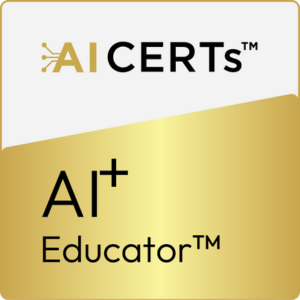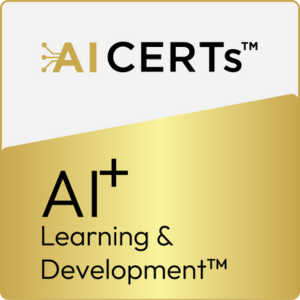Prerequisites
- Basic understanding of education theories and practices.
- Familiarity with digital tools and educational technologies.
- Experience in curriculum planning is a plus.
- Strong interest in AI’s transformative potential in education.
Exam Details
- Modules (8)
- Examination (1)
- 50 MCQs, 90 Minutes
- Passing Score (70% (35/50))
Exam Blueprint
| Modules | Percentage |
|---|---|
| Foundations of Artificial Intelligence (AI) in Education | 10 |
| AI in Classroom Teaching and Learning | 15 |
| Ethical, Bias, and Sustainability Issues in AI | 20 |
| AI and Curriculum Integration | 15 |
| AI for Administrative Efficiency | 10 |
| Data Literacy and AI | 15 |
| AI-Enhanced Assessment and Feedback | 10 |
| AI Tools and Hands-on Experience | 5 |
What you will get
High-Quality Videos, E-book (PDF & Audio), and Podcasts
AI Mentor for Personalized Guidance
Quizzes, Assessments, and Course Resources
Online Proctored Exam with One Free Retake
Comprehensive Exam Study Guide
Why This Certification Matters
Growing Demand for Certified AI Educators
Educational institutions need qualified professionals who can deliver impactful AI learning and build strong foundational knowledge.
Addressing Gaps in AI Instruction
Outdated methods and ineffective teaching can limit students' understanding and application of AI. This certification helps bridge that gap.
Building Future-Ready AI Curricula
Certified educators play a key role in designing engaging, up-to-date curricula that meet evolving industry requirements.
Empowering Career Growth in AI Education
As AI reshapes the world, this certification positions educators to lead, inspire, and prepare future AI talent with confidence.
Who Should Enroll?
Data Scientists
Apply AI and quantum computing to uncover patterns and insights in complex datasets.Software Developers
Integrate AI-driven quantum algorithms into next-gen software applications.Mathematicians and Statisticians
Enhance modeling and analysis with quantum and AI-powered techniques.Researchers and Innovators
Drive breakthroughs by exploring the intersection of AI and quantum computing.Tech Enthusiasts
Stay future-ready by mastering cutting-edge tools reshaping the tech landscape.
AI Tools in Education:
ChatGPT
An AI-powered conversational assistant for personalized tutoring, writing support, and interactive learning.Eduaide
A tool that helps educators create lesson plans, generate assessments, and integrate AI into classroom instruction.GradeScope
AI-enhanced grading software that streamlines evaluation of assignments, exams, and projects.Classtime
A real-time assessment and engagement platform supporting data-driven teaching with AI integration.
Prerequisites
Basic understanding of educational theories and practices
Familiarity with digital tools and educational technology
Some experience in lesson planning and curriculum design
Interest in the potential and application of AI in education
Exam Blueprint
- Foundations of Artificial Intelligence (AI) in Education - 10%
- AI in Classroom Teaching and Learning - 15%
- Ethical, Bias, and Sustainability Issues in AI - 20%
- AI and Curriculum Integration - 15%
- AI for Administrative Efficiency - 10%
- Data Literacy and AI - 15%
- AI-Enhanced Assessment and Feedback - 10%
- AI Tools and Hands-on Experience - 5%
Frequently Asked Questions
1. Who should enroll in the AI+ Educator™ Certification?
This certification is ideal for educators, instructional designers, academic coordinators, education technology specialists, and anyone involved in curriculum planning or digital learning transformation who wants to integrate AI into teaching practices.
2. How will the course benefit educators?
Educators will gain the skills to design AI-aligned curricula, use AI tools to enhance engagement, analyze student performance data, and stay ahead of educational trends with responsible and effective AI use.
3. Are there any hands-on activities included in the certification?
Yes, the course includes practical exercises, tool walkthroughs, AI lesson planning, data-driven decision-making simulations, and real-world classroom applications to ensure active learning.
4. How can educators apply what they learn in the course to their classrooms?
Participants will learn to design inclusive, ethical, and data-informed AI lesson plans, personalize learning experiences, and use AI tools to increase classroom efficiency and engagement.
5. How do you update content in the certification?
Course content is regularly updated by a panel of AI and education experts to reflect the latest advancements, tools, teaching methodologies, and ethical guidelines. Updates are integrated into the LMS with notifications to learners.



